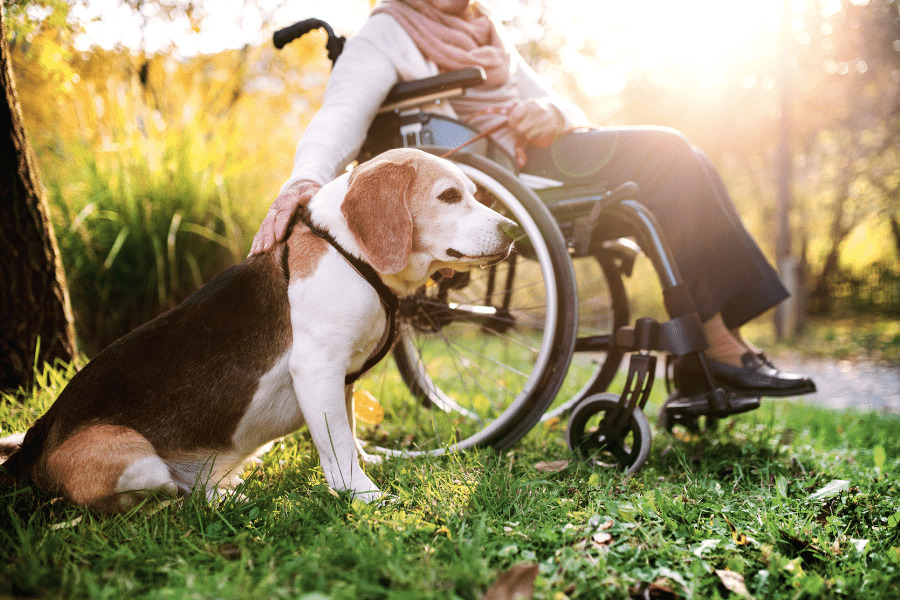
Introduction
Do you ever feel lonely or isolated? Are you looking for a loyal and loving companion who can bring joy and happiness to your life? Look no further than man’s best friend – dogs! Dogs have been cherished companions for centuries, and they have a special place in the hearts of the elderly. In this blog post, we will explore why dogs are the ideal companions for the elderly, highlighting the numerous benefits they bring to their lives.
Emotional Support

Dogs provide unconditional love and emotional support to their owners. They have an innate ability to sense their owner’s emotions and provide comfort when needed. For the elderly, who may often experience feelings of loneliness and depression, having a dog by their side can make a world of difference. The presence of a furry friend can bring a sense of purpose and meaning to their lives.
Physical Health Benefits
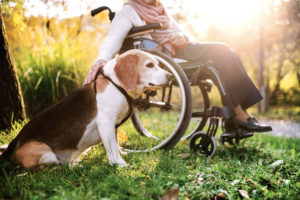
Having a dog as a companion encourages regular exercise and physical activity. Whether it’s taking a leisurely stroll around the neighborhood or playing fetch in the park, dogs can keep their owners active and moving. This increased physical activity can have a positive impact on cardiovascular health, helping to reduce the risk of heart disease and improve overall well-being.
Mental Stimulation
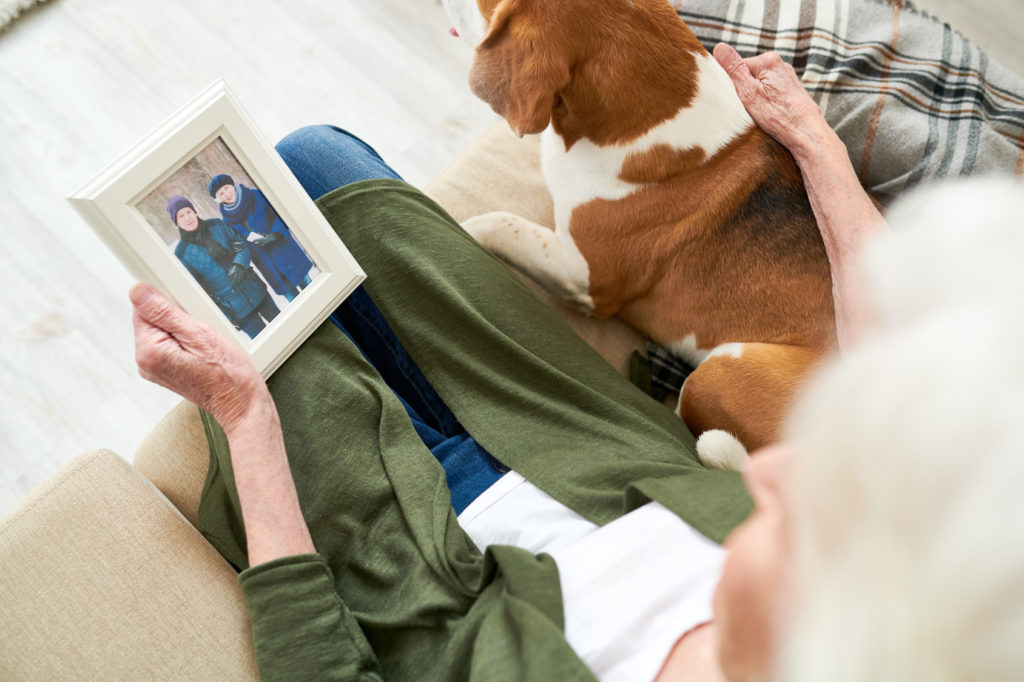
Dogs provide mental stimulation for their elderly owners. They require training, attention, and mental engagement, which can help prevent cognitive decline. Interacting with a dog can improve memory and cognitive function, keeping the mind sharp and active. Dogs are also great listeners, providing a non-judgmental ear for their owners to share their thoughts and feelings.
Reduced Stress and Anxiety
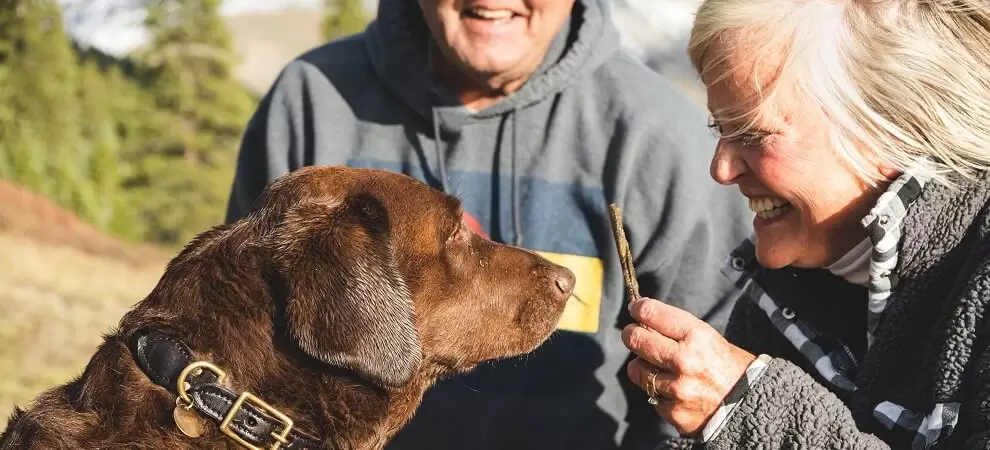
Dogs have a calming effect on their owners. The simple act of petting a dog can help reduce stress and anxiety. Research has shown that dogs can lower blood pressure and decrease stress hormone levels. For the elderly, who may face daily stresses or worries, having a dog as a companion can provide much-needed relaxation and peace of mind.
Social Interaction
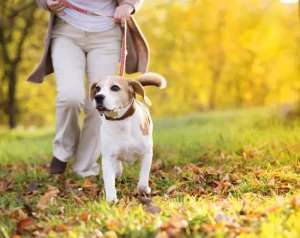
Dogs can be great facilitators of social interaction for the elderly. They provide a common topic of conversation and help break the ice in social situations. Taking a dog for a walk or visiting a dog park opens up opportunities for the elderly to connect with other dog owners and build new friendships. Dogs are natural social magnets, drawing people together and creating a sense of community.
Sense of Purpose
Having a dog gives the elderly a sense of purpose and responsibility. Dogs rely on their owners for their daily care and well-being. This responsibility can provide structure and routine in daily life, giving the elderly a reason to get out of bed in the morning. The feeling of being needed and the bond formed with a dog can bring immense joy and fulfillment.
Increased Safety and Security
Dogs can act as a deterrent to intruders and provide a sense of security for the elderly. Their keen senses and protective instincts make them excellent watchdogs. Dogs can alert their owners to potential dangers or emergencies, providing peace of mind and an added layer of safety.
Companionship for Loss and Bereavement
The loss of a loved one can be an incredibly difficult and lonely experience, especially for the elderly. Dogs can offer comfort and companionship during times of grief and bereavement. They provide constant companionship and unconditional love, helping to ease the pain of loss and fill the void left behind.
Boosted Mood and Happiness

Dogs have a remarkable ability to boost the mood and happiness of their owners. Their playful antics, unconditional love, and infectious enthusiasm can bring joy and laughter to the lives of the elderly. The presence of a dog can brighten even the darkest of days and provide a renewed sense of purpose and happiness.
Improved Quality of Life
Overall, dogs enhance the quality of life for the elderly. They provide companionship, love, and a sense of belonging. Dogs offer a constant source of support and comfort, helping their owners navigate the ups and downs of life. They are faithful and loyal friends who bring immense joy and fulfillment.
Considerations for Choosing a Dog
When selecting a dog for an elderly person, there are a few factors to consider. It’s essential to match the dog’s temperament and energy level with the individual’s lifestyle. Some dogs may require more exercise and attention than others, so it’s crucial to choose a dog that will be a good fit. Consulting with a local shelter or rescue organization can help find the perfect canine companion.
Overcoming Challenges
Owning a dog as an elderly person may come with its challenges, but there are solutions and resources available to help overcome them. For example, there are dog walking services and pet sitters who can assist with daily care and exercise. Additionally, there are community programs and organizations that provide support to elderly dog owners, such as assistance with veterinary care and pet supplies.
Conclusion
In conclusion, dogs are the ideal companions for the elderly. They provide unconditional love, emotional support, and numerous physical and mental health benefits. Dogs offer a sense of purpose, companionship, and security to their elderly owners, enhancing their overall quality of life. If you or a loved one is seeking companionship, consider the joy and happiness that a dog can bring. Don’t wait, open your heart and home to a furry friend today!
